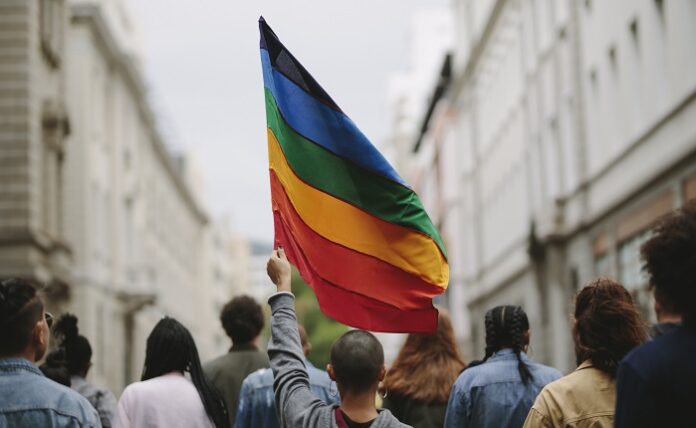As LGBTQ Pride Month 2024 begins, experts say HR leaders should look to lessons learned from high-profile controversies that erupted during last year’s Pride Month to arm themselves with smarter strategies.
Target, Kohl’s and Anheuser-Busch are among the companies that faced boycotts and protests last June over how they expressed support for the LGBTQ community, part of a wider pushback against corporate DEI efforts. But when these companies backtracked on some of their Pride initiatives to appease that outcry, they faced backlash from their LGBTQ and ally employees and community members—the very people they were working to support.
As more Americans come out as LGBTQ—a study by the Human Rights Campaign found that one in seven adults will identify as LGBTQ by 2030—prioritizing inclusion is increasingly considered a smart business decision.
“The queer workforce itself is growing,” says Greg Sottolano, chief people officer at Folx, a healthcare provider focusing on the LGBTQ community. “So, the future of your workforce and the future of your productivity depends on supporting the LGBTQ community.”

It’s support that LGBTQ candidates and employees want. According to an Indeed report last year, 79% of LGBTQ job applicants want to work for companies that publicly back and protect their community. Without that, employers can see impacts on recruitment, retention and engagement, says Charlotte Hughes, founder and CEO of Inclusive Leaders Group, a talent development and DEI consulting firm.
In addressing missteps by companies like Target, Kohl’s and Anheuser-Busch, Hughes warns, “It’s going to cost you turnover and retention by ignoring these past errors. By ignoring them, you’re basically deciding that you’re not willing to learn and apply best practices. So, you’re not doing your job.”
Pride Month lessons for 2024
Here are four takeaways from last year that experts say HR leaders should consider when unveiling their celebrations this month.
Lead the discussion
To strategize for potential backlash in a way that avoids alienating LGBTQ employees, HR should strategically collaborate with LGBTQ employees and community members, such as through ERGs and informal meetings. Given the appearance of backsliding on LGBTQ support by companies like Target, Kohl’s and Anheuser-Busch, companies should be proactive and inclusive to get ahead of problems that may arise with their festivities or merchandise, he says. Kohl’s, for example, received threats of a boycott last year after displaying Pride Month merchandise for children, such as a onesie for infants.
As HR leaders navigate the rollout of Pride Month initiatives, they should also remember it doesn’t have to be a solo journey.
“It is not yours alone to find the solutions. It is yours to lead the discussion to get solutions,” Sottolano says. “I don’t think [HR needs] to have all the answers necessarily, but you’ve got to get the right people in the room to have the discussion.”
Actions speak louder than words
During last year’s Pride Month, Anheuser-Busch’s Bud Light marketing team sent transgender influencer Dylan Mulvaney a commemorative beer can with her face on it. That spurred conservative commentators, such as Matt Walsh, to immediately call for a boycott of Bud Light. With Bud Light sales and its stock price falling, the beer maker issued a terse statement in response to the controversy, and its vice president of marketing, Alissa Heinerscheid, subsequently took a leave of absence and is no longer with the company. Some viewed the moves as backpedaling on supporting Mulvaney and the LGBTQ community.
To reinforce its support, Anheuser-Busch donated $200,000 to the National LGBT Chamber of Commerce (NGLCC).
“I think the biggest piece of advice I would walk away with from this is if you’re faced with a situation like this, actions speak louder than words,” Sottolano says. “At a minimum, support from an organization’s philanthropic foundation is really the key to success here.”
This donation was on top of the company’s documented support for LGBTQ causes, including through other, ongoing charitable donations, Sottolano says, adding that the long-term relationship is the opposite of rainbow washing.
Avoid rainbow washing
Rainbow washing occurs when companies publicly display support for the LGBTQ community and employees, particularly during Pride Month, but forego substantive action during the rest of the year.
“An important lesson learned is not to focus solely on the month of June to support your LGBTQ employees. We have to look at this as, ‘This is your life. This is about a community,’ ” Hughes says. “And for HR to do that, we have to gather more information and know what [employees] are feeling, thinking and how it impacts [their] performance and job.”
Brace for more controversy
With 2024 an election year and anti-LGBTQ legislation increasing, HR leaders can anticipate an “intense” climate during Pride Month, and for the remainder of the year, Hughes says.

She advises HR leaders to assume a challenging environment and take a risk management approach that entails gathering input from employees and community members with varying viewpoints on LGBTQ acceptance. With their suggestions, HR can address concerns and develop an initiative that satisfies supporters and opposition as much as possible.
“It’s about connecting. We’re united by our passion and our points of view. And while we may not agree with one another, we do have to respect each other,” Hughes says. “To that end, it means that we have to have this common approach to how we gather information that will make things better and execute on that with buy-in, support and storytelling to motivate people to do something about it.”



